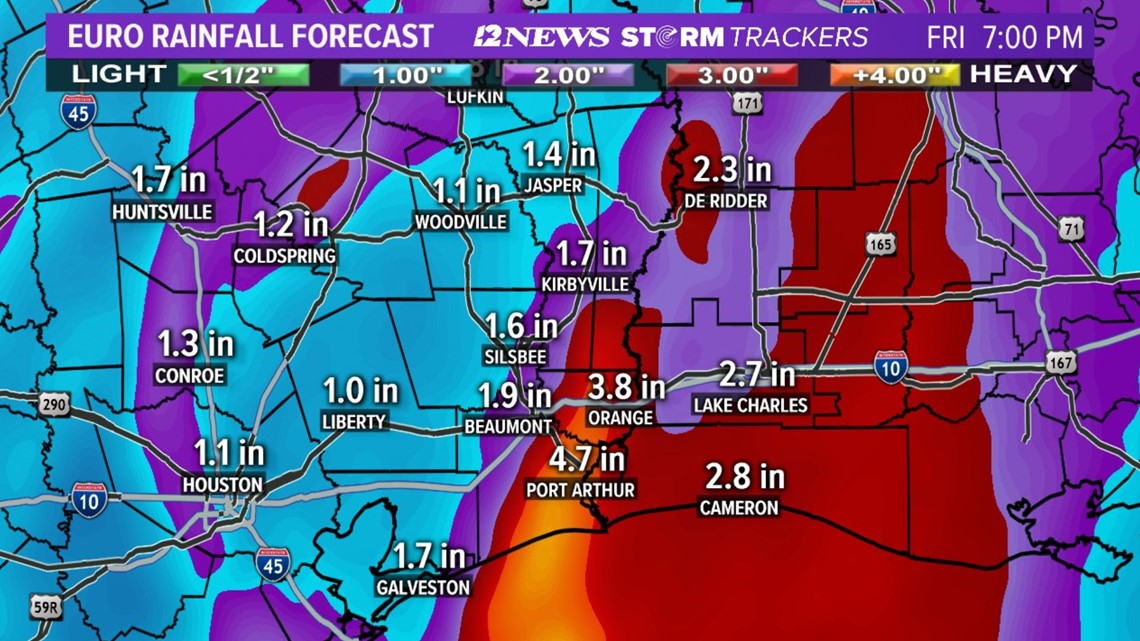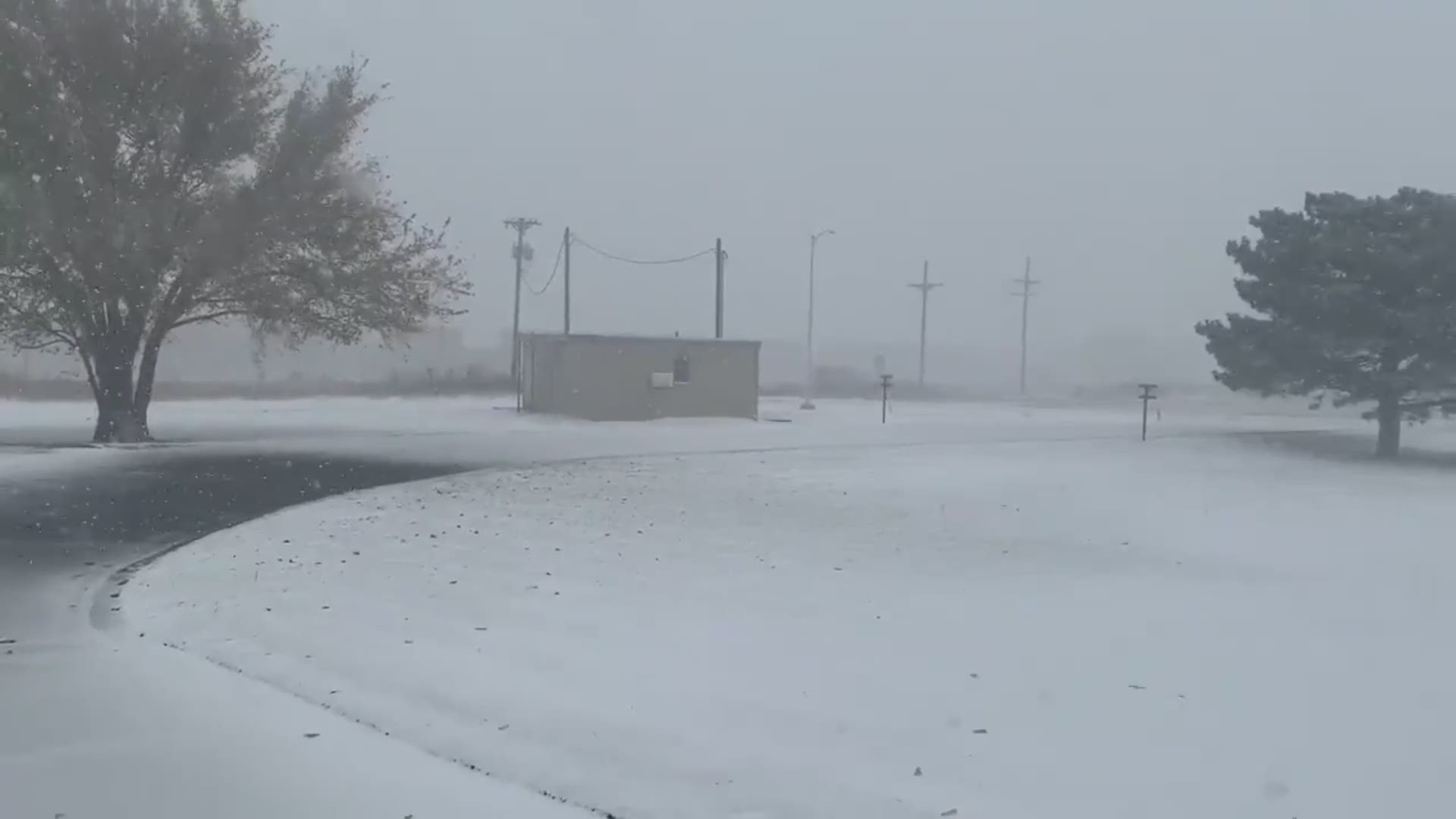BEAUMONT, Texas — The wild weather across Texas continues.
Meteorologists were tracking tornadoes on Sunday, and they are now tracking heavy snow in the Texas Panhandle and a potential tropical depression in the Gulf of Mexico.
Heavy snow has been falling across the Panhandle for most of the afternoon Thursday.
The white out, blizzard-like conditions have been a "big problem" during the afternoon commute in Amarillo, according to a tweet from National Weather Service meteorologist Dr. Stephen Bieda.
Dr. Bieda says about an inch of snow has fallen with wind gusts topping 45 mph. It has also produced thundersnow, a weather phenomenon that's basically a winter thunderstorm that produces snow instead of rain.
The snow is part of a cold front moving across Texas. The wind chill in the Texas Panhandle has sent temps plummeting into the teens and upper 20s. Parts of the Rio Grande Valley are already experiencing temps in the low to mid 30s Thursday afternoon.
That cold front is expected to continue moving across Texas Thursday night into Friday morning and collide with a potential tropical depression that is forming in the Gulf of Mexico.
The National Hurricane Center believes there is a 60% chance this tropical disturbance forms into a named depression or storm in the next 48 hours.
The potential tropical disturbance, currently categorized by the National Hurricane Center as Invest 97, could become Tropical Depression Olga by Friday.
As the cold front merges with that tropical moisture, it is forecast to bring potentially flooding rain to parts of Southeast Texas Friday.
Forecasts suggest many areas could see at least 2-5" of rain. Heavier amounts are possible.


Over the weekend, nine tornadoes cut a path of destruction across North Texas.
The tornadoes have ranged in classification from a minimum EF-0 to an EF-3, which brought winds topping 140 mph to Dallas.
The storms leveled homes and businesses across North Texas. The longest confirmed tornado path was the EF-3 in North Dallas, which stretched for 15.75 miles, according to the NWS.
The tornadoes caused $2 billion in losses, making it the costliest weather event ever in North Texas.

